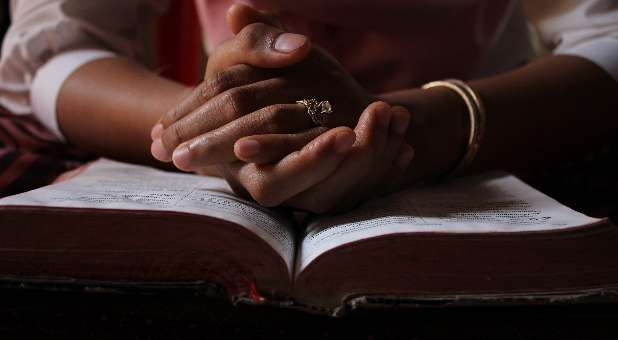R.T. Kendall: The Greatest Danger Lurking in the Church Today
Read Time: 3 minutes 33 seconds
A pastor recently asked me, “R. T., what would you like to accomplish before you die?” It was an easy reply: “I would like to see Christians once again take the Bible seriously.” I have been in the ministry for 65 years. In my early days of preaching biblical infallibility was an assumption by Christians—whether Pentecostal, evangelical, Calvinist or Arminian. In those days both preachers and laymen read their Bibles. Many in the pew often knew their Bibles as well as most preachers! Today, Christians generally do not know their Bibles because they do not read their Bibles. Sadly, few pastors nowadays urge their members to read their Bibles. Some pastors only turn to their Bibles when they need a sermon.
I went to a seminary many years ago not knowing it was very liberal. The “Documentary Hypothesis” (Moses didn’t write Genesis), neo-orthodoxy (the Bible only “contains” the Word of God), Barthianism (virtually universalism, witnessing to the lost was unnecessary), the philosophy of Paul Tillich (faith is “ultimate concern”—an atheist could have genuine faith) and process theology (panentheism which is really pantheism—all is God) was pushed by my main theology professor. My New Testament professor did not believe in the bodily resurrection of Jesus. My ethics professor rejoiced when the Supreme Court voted for the Roe v. Wade decision in 1973. Traditional belief in heaven and hell has been largely replaced by universalism or the theory of annihilation (as opposed to conscious eternal punishment).
When I consider the latest research regarding Christians, charismatics, evangelicals and Pentecostals, the statistics are more shocking than I imagined. I had no idea that so many Christians today have been equivocal on abortion, sexual infidelity, same sex marriage, biblical inspiration, getting to heaven by being good enough and the belief that Jesus is the only way to God or to heaven.
Virtually half of my ministry has been spent in Britain. One of the differences between British Christianity and American Christianity is that the charismatic movement in England is mainstream, but in America it is often regarded as the lunatic fringe. The Archbishop of Canterbury told me that he prays in tongues 30 minutes a day as he jogs in the grounds of Lambeth Palace. So do many church leaders in Britain, surprising as it may seem. What is more curious is that in many cases speaking in tongues has minimal effect on one’s theological thinking!
In my view, the greatest danger to the church today on both sides of the Atlantic is the acceptance of open theism—consciously and unconsciously. A leader with huge influence by his position in Fuller Theological Seminary embraced open theism and it spread like wild-fire through the charismatic movement. I asked one famous leader, “Are you an open theist?” He didn’t know what it was. But he was. I begged him to write a book with me, but he declined. Nothing worries more than the acceptance of open theism.
Open theism is the view that God is open to you and me in order to decide what He should do next. God does not know the future. He looks to us for input to know what to do! It is virtually no difference from process theology—arguably the nearest to atheism as you get. My professor at my seminary was actually a good friend and recommended me for Oxford (probably because the seminary hadn’t changed me and they thought Oxford would) said this: “I went from fundamentalism to Barth, from Barth to Tillich, from Tillich to process theology—and now I don’t know what I believe”. By the grace of God neither my seminary nor Oxford changed me. The reason—and the only reason: I maintained a strong personal prayer life and daily Bible reading. Things were settled on my knees not my head.
It was an assumption for two thousand years that the God of the Bible knows the future. Otherwise, how could there be prophets? “A God who does not know the future Is not God”, said St. Augustine. One thing that Pentecostals, Armenian’s and Calvinists had in common was this: God knows the future. Process theology which I call “camouflaged atheism” says no. Out of this teaching came the idea that we must “claim” something, stand on it until God does it. In other words, we don’t ask, “What is your will?” as all the saints in the Bible did. We tell God what His will should be!
One of the proponents of this theory—a widely respected prophet—now teaches that we must be willing to “go off the roadmap,” the Bible, to hear God speak to us.
When I consider the liberalism that pervades Christianity, I ask: How did it happen?” I am afraid the answer is: we don’t read our Bibles. We don’t know our Bibles.
May God hasten the day that this will change. {eoa}
R.T. Kendall was the pastor of Westminster Chapel in London, England, for 25 years. Born in Ashland, Kentucky, he was educated at Southern Baptist Theological Seminary (Master of Divinity) and Oxford University (doctorate). Kendall is the author of more than 60 books, including Total Forgiveness; Holy Fire; Pigeon Religion: Holy Spirit, Is That You?; The Sensitivity of the Spirit; Grace; and The Anointing: Yesterday, Today, Tomorrow.














































